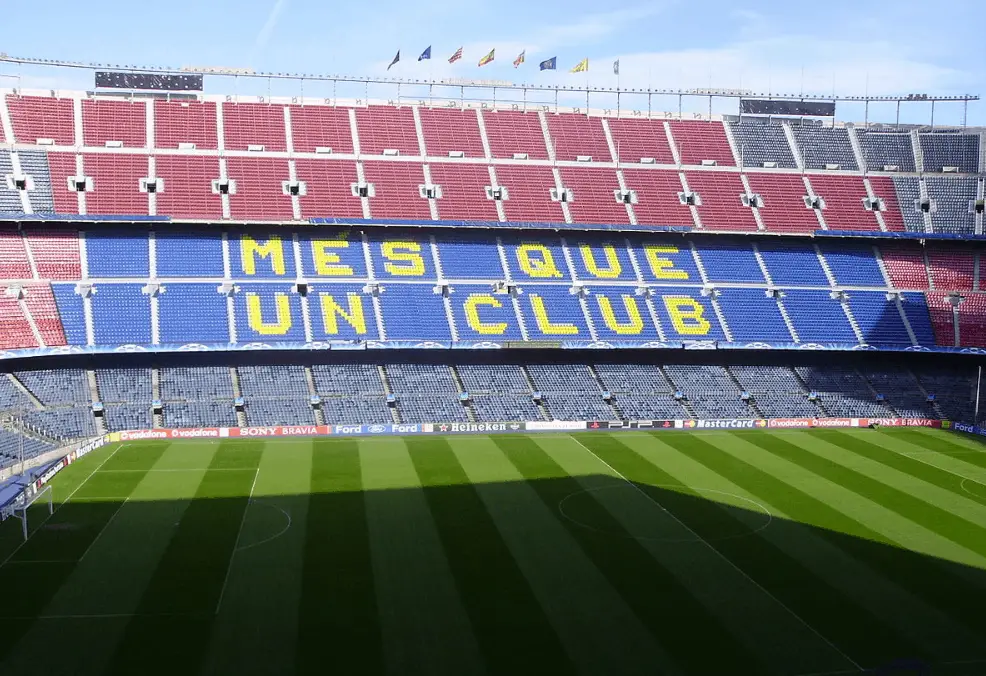This is without a doubt one of the most amazing football temples in Spain and even in the world.
In this post, you’ll discover the ultimate list of facts about Camp Nou in Barcelona, the home of one of the biggest football clubs in the world and the biggest stadium in Europe.
1. What does Camp Nou mean?
Camp Nou is the home stadium of one of the most successful football clubs in Spanish history, FC Barcelona.
In English, the stadium is often referred to as “the Nou Camp,” which literally translates to “The New Ground.” This was the nickname given to the stadium after FC Barcelona moved from their old stadium to the newly constructed stadium.
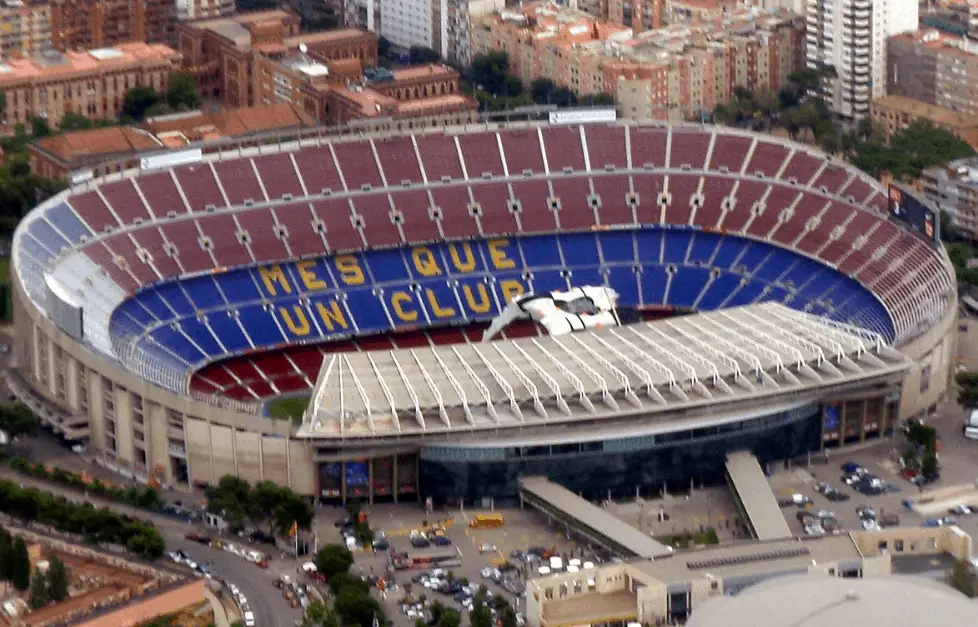
2. It’s the largest football stadium in Europe
Camp Nou is not just the largest football stadium in Spain, followed by the Bernabéu in Madrid, but also the largest football stadium in Europe.
At the moment, it has a total seating capacity of 99,354. This also makes it the third-largest football stadium in the world by capacity, as only the AT&T Stadium, formerly the Cowboys Stadium, in Arlington (105,000 capacity), and the Rungrado 1st of May Stadium in Pyongyang (assumed 114,000 capacity), are bigger.
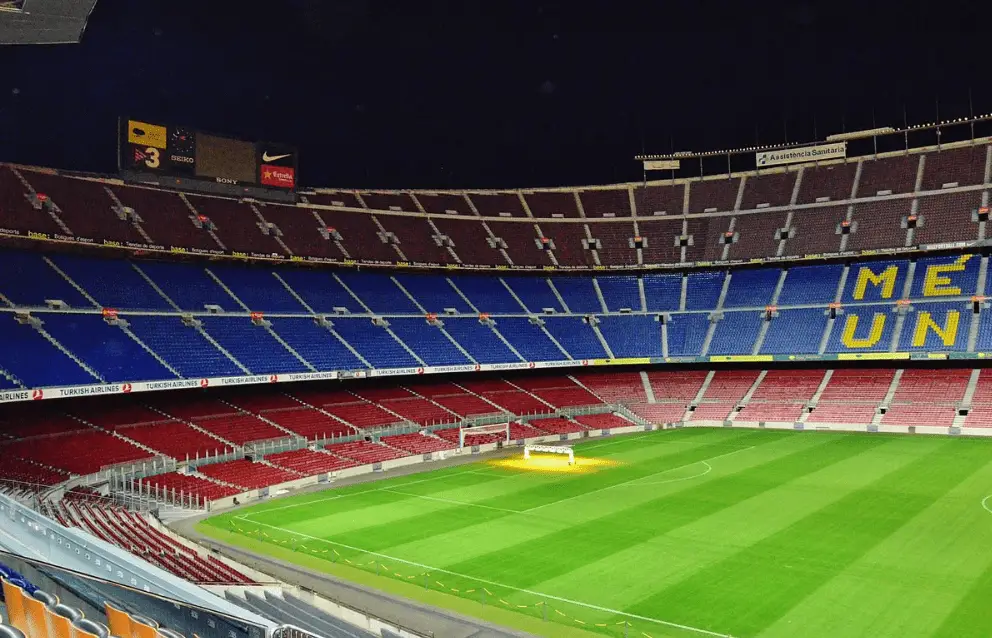
3. When was Camp Nou constructed?
The construction of Camp Nou started on March 28, 1954, and it was completed just 3 years later with its official opening on September 24, 1957.
4. The old stadium was too small
FC Barcelona was already a powerhouse in Spanish football in the 1950s and is one of 3 clubs in Spain that have never been relegated. The other two being Real Madrid and Athletic Bilbao.
Unfortunately, the old stadium of FC Barcelona called “Camp de Les Corts” didn’t have the option to expand beyond its capacity of 60,000 spectators.
Therefore, a new location was sought to construct an amazing new football temple.
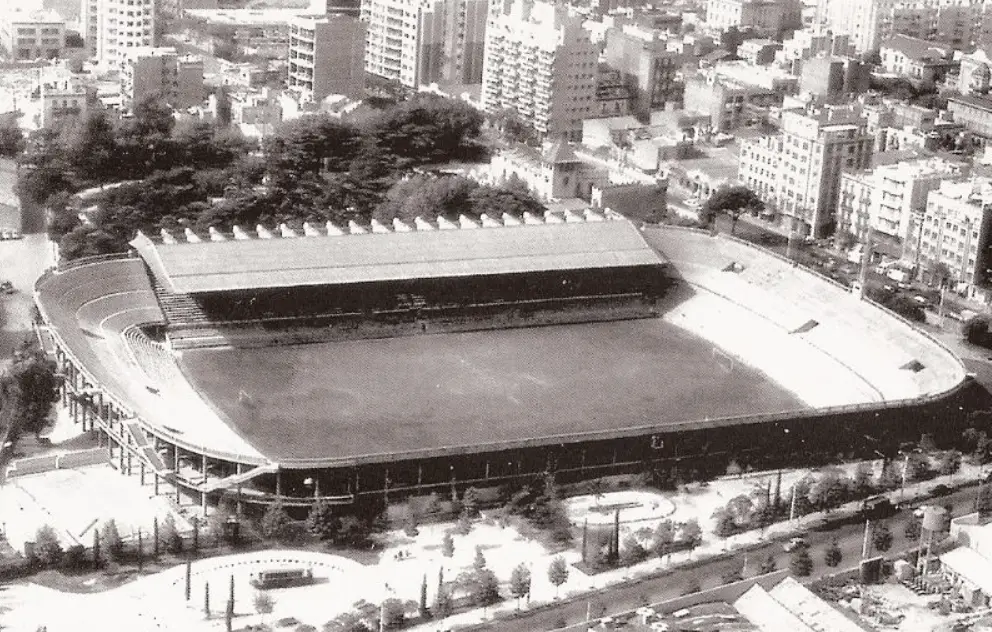
5. This player encouraged its construction
In June 1950, FC Barcelona signed one of the best upcoming players in European football, the Hungarian László Kubala. This was an amazing attraction for the fans of the club, comparable to the amazing exploits of Lionel Messi today.
The fan base expanded tremendously during this period, so the need for a new stadium became bigger and bigger, eventually resulting in a decision being made to construct Camp Nou.
Just as the heroes of Manchester United are commemorated with statues just outside of Old Trafford, so is Barcelona’s hero László Kubala just outside of Camp Nou.
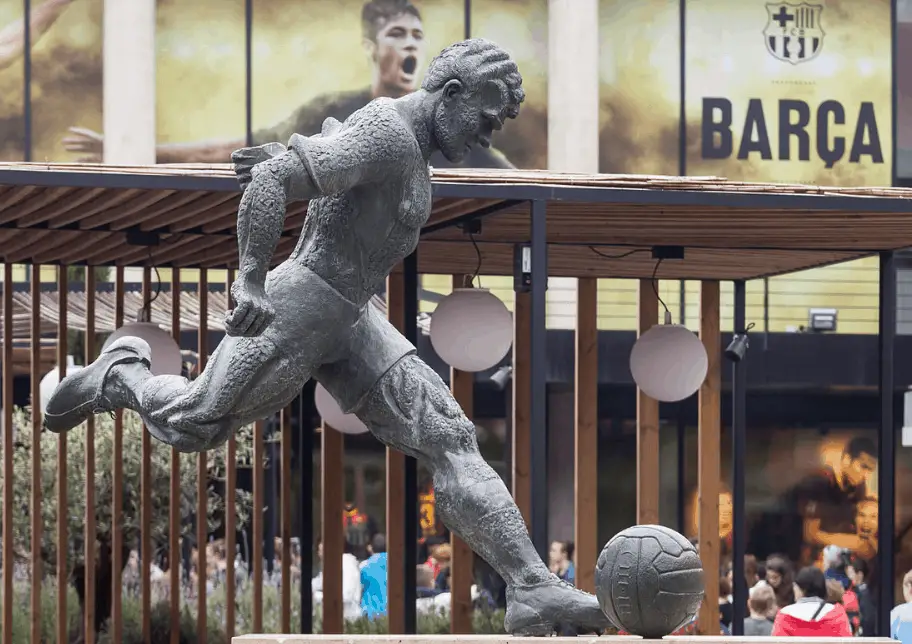
6. It was a very expensive stadium
The total cost to build Camp Nou was a staggering 288 million Peseta’s, which is the equivalent of nearly 2 million dollars or 1.75 million euros.
Let’s not forget, these were the 1950s and the budget of clubs was much lower than it is today. FC Barcelona was in serious debt for multiple years following the construction.
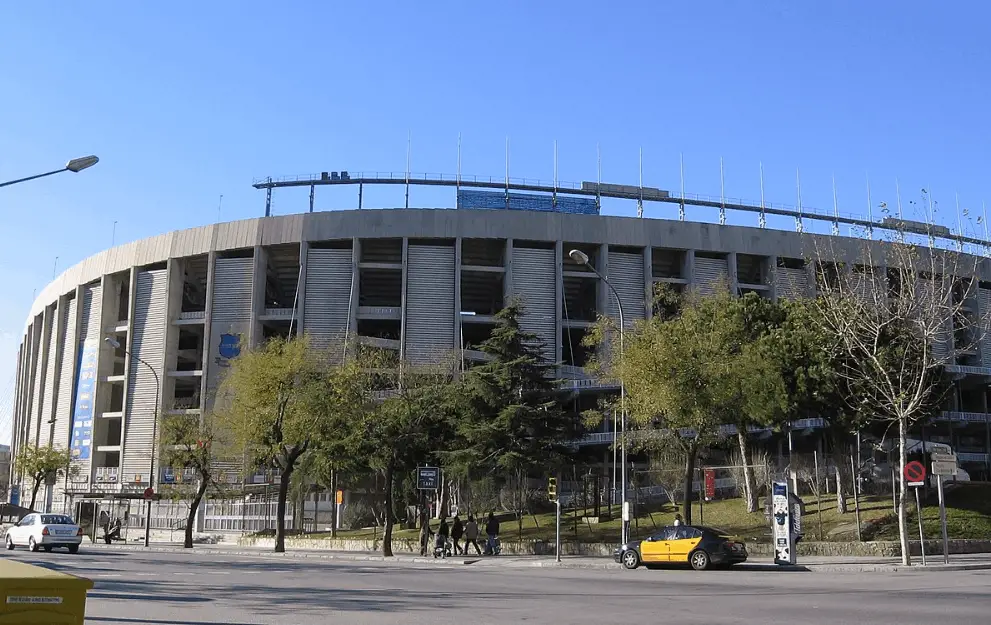
7. It was built by three Catalan architects
The main building materials for the stadium’s construction were concrete and iron. The maximum height of Camp Nou is 48 meters (157 feet) and it covers an area of about 55,000 square meters (250 by 220 meters – 820 by 721 feet)).
The two main architects Francesc Mitjans and Josep Soteras, as well as the assitant architect, Lorenzo García Barbón, were all born in Barcelona.
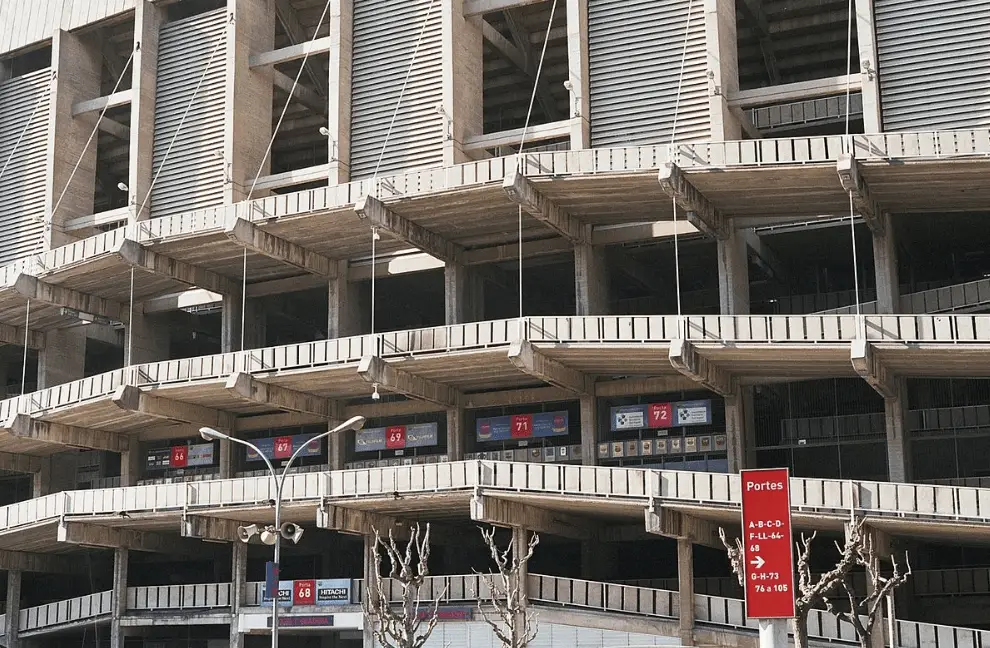
8. It used to have a different official name
One of the most interesting facts about Camp Nou is that the original official name of the stadium was “Estadi del FC Barcelona.” Camp Nou has been used since its inception but merely as a popular nickname.
It wasn’t until the 2000/2001 season though that the name was officially changed from “Estadi del FC Barcelona” to “Camp Nou,” through official voting.
29,102 votes were cast by fans of the club, and 19,861 (68.25%) were in favor of changing the official name.
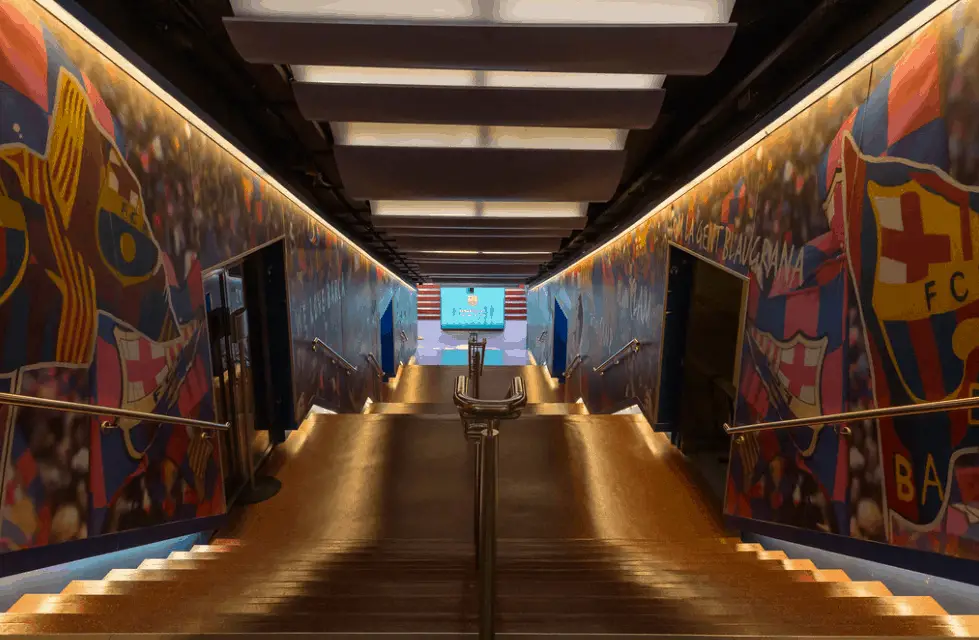
9. Barcelona won the first match in the new stadium
The first game in the stadium saw FC Barcelona beat a collection of Hungarian players referred to as the Warsaw XI at the end of a long day of festivities in celebration of the opening of Camp Nou.
The game ended in a 4-2 win for FC Barcelona and Eulogio Martínez, a Paraguayan player who wore the shirt of FC Barcelona for 7 years, went down in history as the first-ever player to score a goal at the new stadium!
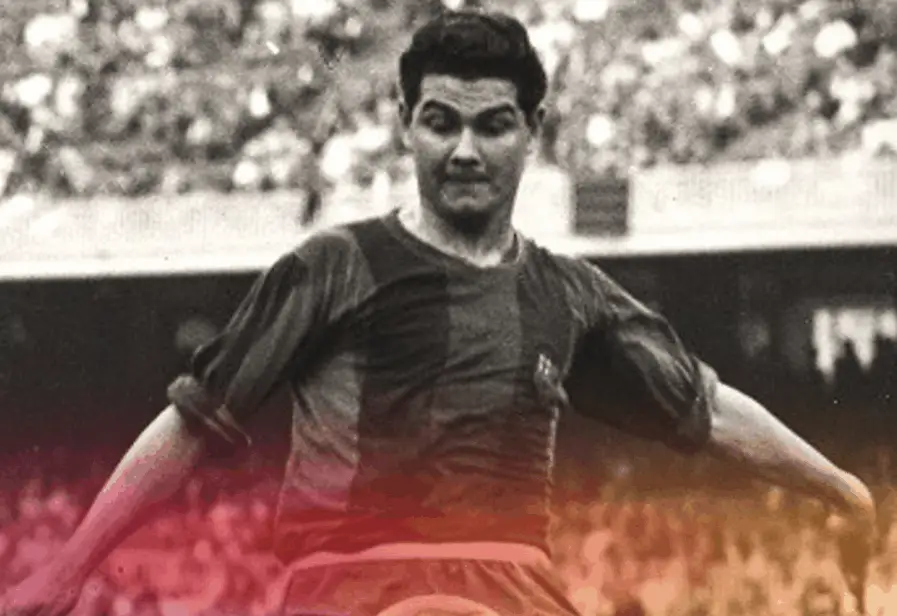
10. The first official match was even better
Just 2 weeks later, on October 6, 1957, FC Barcelona played its first official match at the Camp Nou stadium in a league game against Jaén.
FC Barcelona, managed by Domènec Balmanya at that time, beat Jaén with a convincing 6-1 score. The tone for a success story was set instantly!
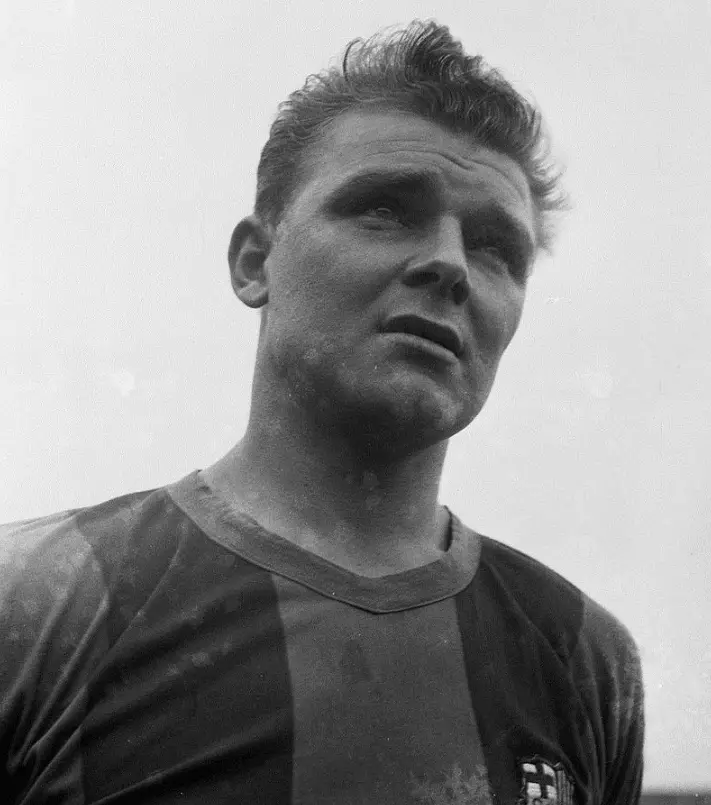
11. It hosted its first European Cup Final in 1972
Nou Camp isn’t just used for games of FC Barcelona. Over the decades, it has hosted multiple important international games.
The first time it was the host of a European Cup Final was in 1972 for the European Cup Winners’ Cup Final between the Glasgow Rangers and Dynamo Moscow, a game that ended 3-2 in favor of the Scottish club.
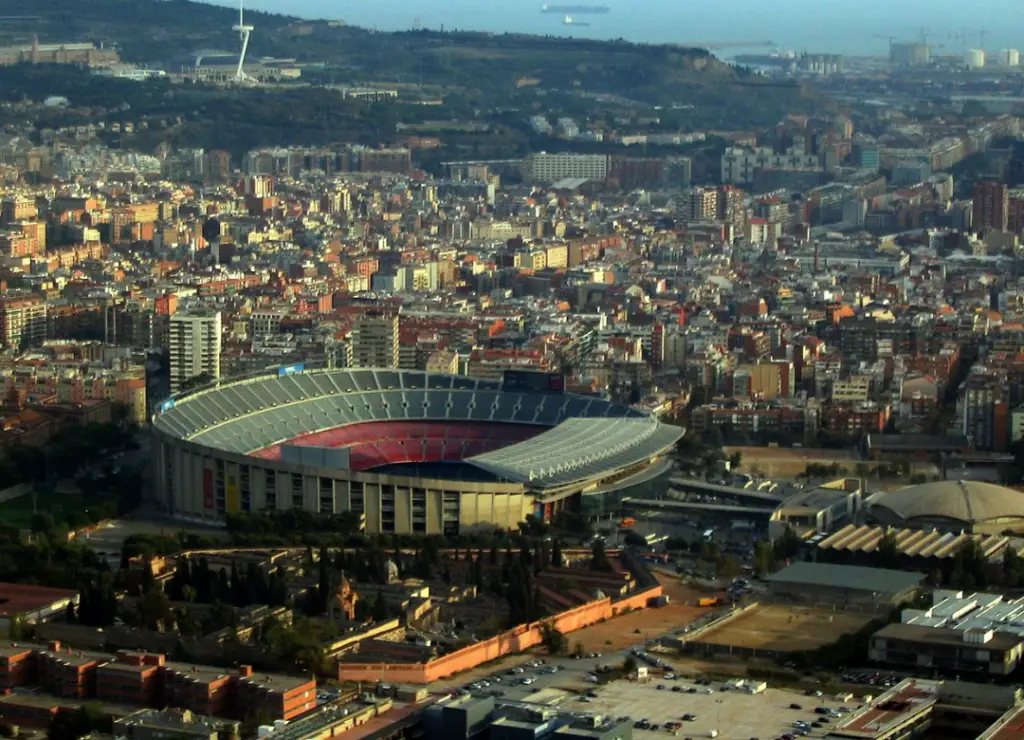
12. The stadium was expanded in the early 1980s
Camp Nou became one of the most prominent venues for the 1982 FIFA World Cup, and to make a great impression, the stadium was seriously expanded for this tournament in the early 1980s.
A third tier was added and the seating capacity went to 71,731 while the standing capacity went from 16,500 to 49,670. This made the total capacity of the stadium an astounding 121,401!
Apart from the expansion, other facilities were improved as well such as boxes, VIP lounges, a new press area, and new markers.
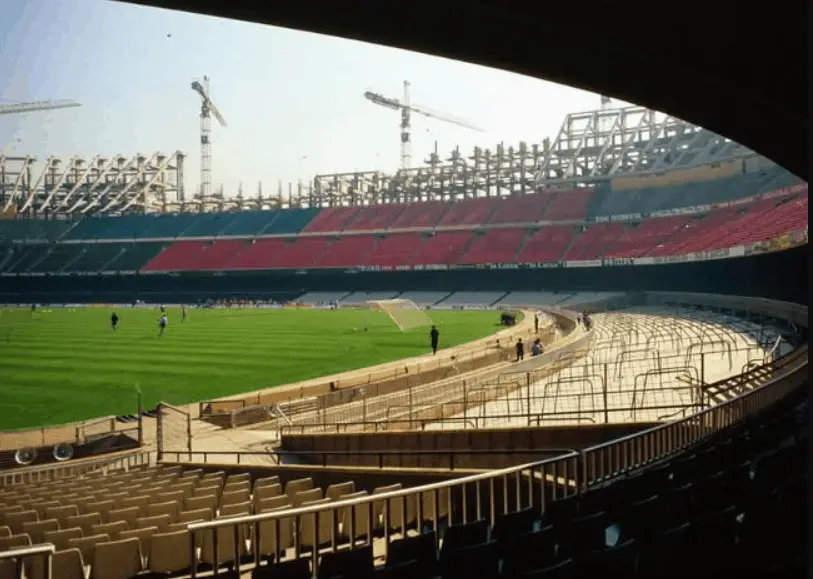
13. It hosted the opening game of the 1982 FIFA World Cup
The final wasn’t played at Camp Nou, but in Madrid at the Santiago Bernabéu Stadium. It did host 3 first-round matches and one semi-final between Poland and Italy.
One of the most prominent games was the opening match between defending world champions Argentina and Belgium. Argentina shockingly lost the game 0-1 and went on the be eliminated in the second group stage.
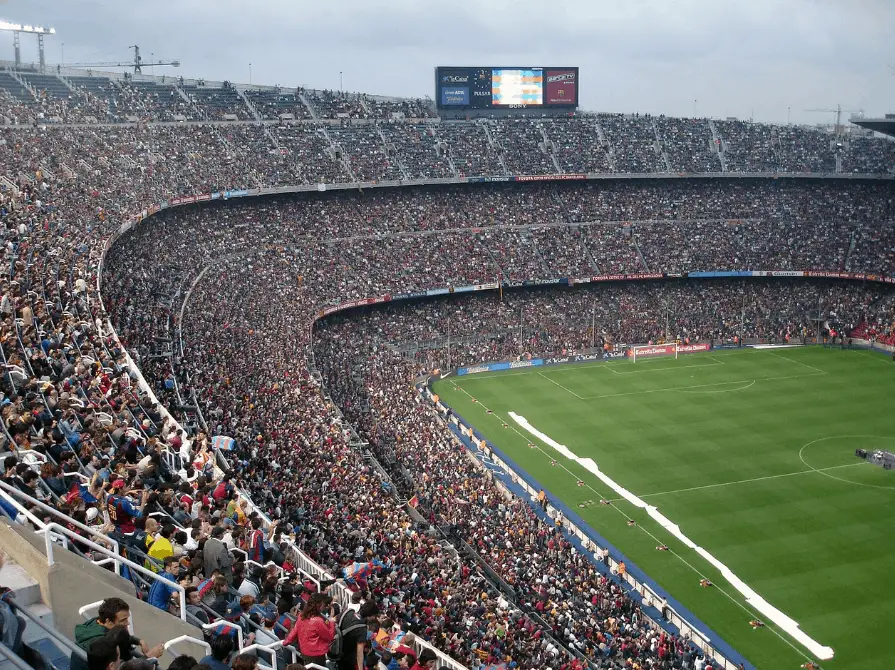
14. Its record attendance was set in 1986
Surprisingly, the Camp Nou stadium never completely reached its full capacity during an official game. Not even during the world cup!
Its record attendance remains to this day 120,000 which happened on March 5, 1986, in a Champions League quarter-final against the Italian side Juventus (who had Michel Platini and the young Michael Laudrup in their ranks).
This game ended in a 1-0 victory for FC Barcelona. If you’re a nostalgic soul, you can watch a summary of this game in a packed Camp Nou here:
15. It hosted its first Champions League final in 1989
The first time the biggest game in European club football was hosted at the Camp Nou stadium was on May 24, 1989.
On this day, the Italian side AC Milan beat Steaua Bucharest with a clear 4-0 score to become the European Champions.
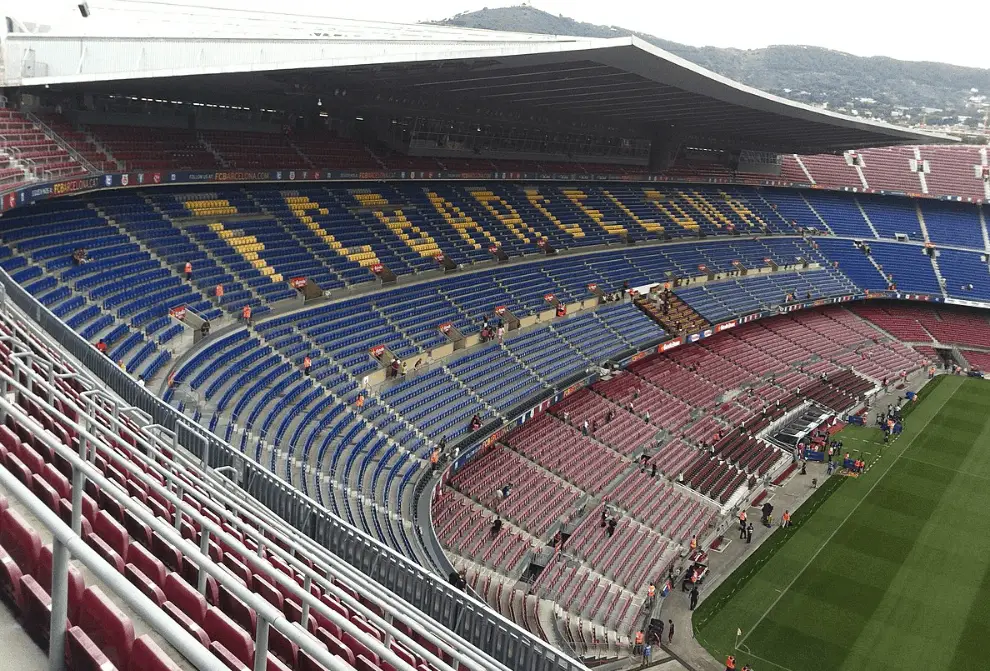
16. The most memorable Champions League Final happened in 1999
One of the most memorable moments in European football happened in the Camp Nou Stadium when Bayern Munich and Manchester United played each other in the other Champions League final hosted in Barcelona.
Bayern Munich took an early lead and ended up conceding 2 goals in extra time. It marked one of the most surprising comebacks in the history of the European Cup finals.
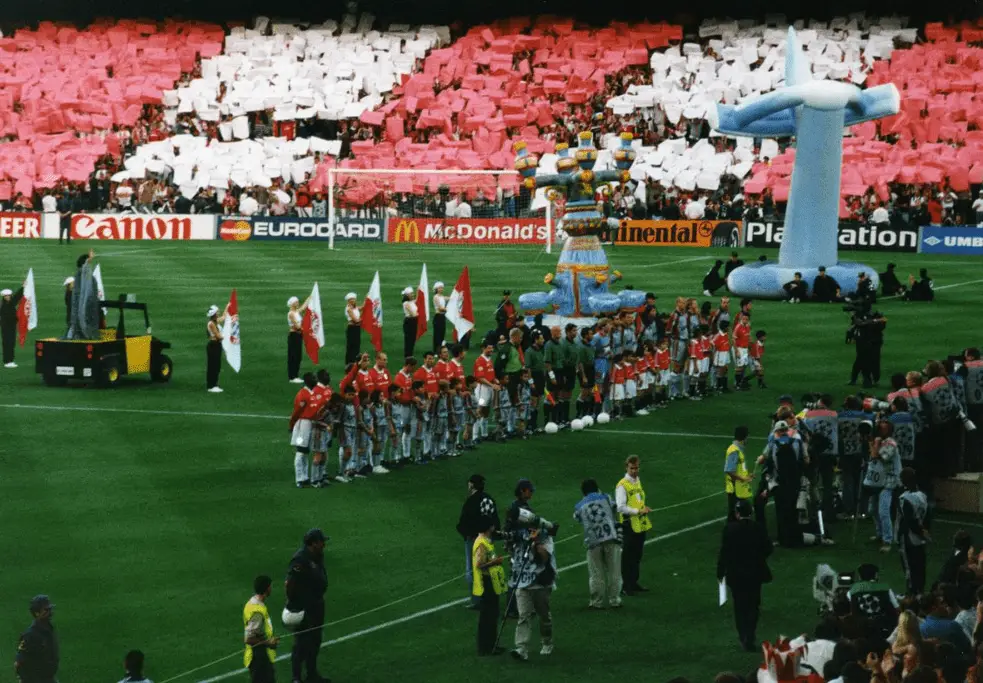
17. It was downgraded from 5 to 4 stars in 2010
In 1999, the year that Barcelona hosted the Champions League final at the Camp Nou, the stadium was awarded a 5-star rating from the UEFA.
With new regulations being introduced by the UEFA in 2010, Camp Nou lost its 5-star status and was downgraded to a 4-star stadium, which still means that it “fulfills the most demanding requirements with regards to facilities, services, and capacity.
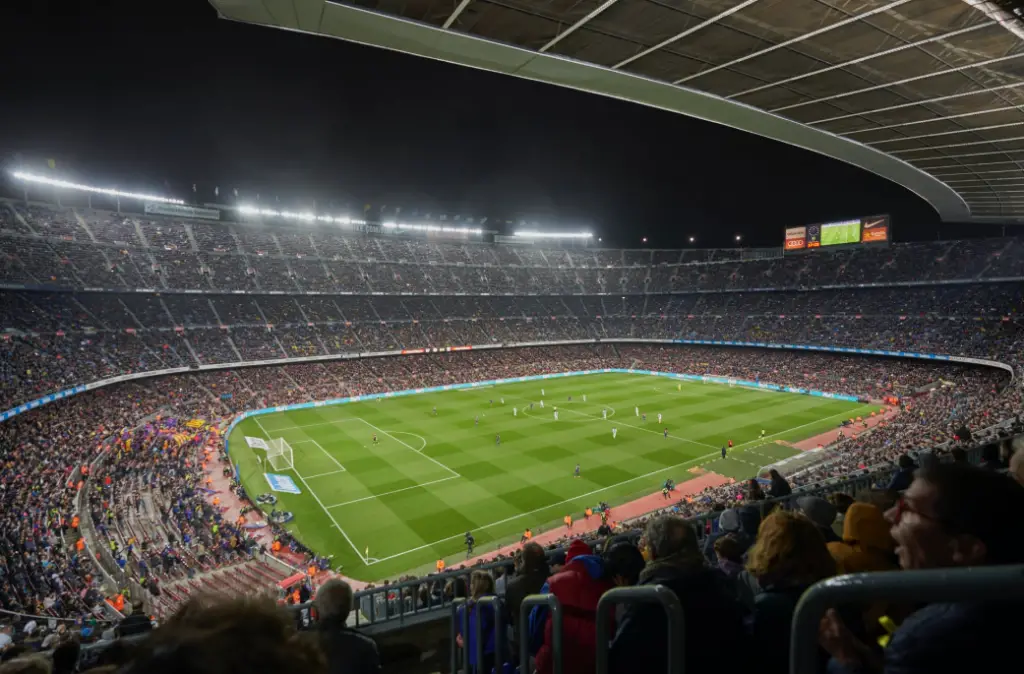
18. Camp Nou will be transformed into “Nou Camp Nou”
The fact that Camp Nou needs to be modernized isn’t something the directors of the club are unaware of. One of the most fascinating facts about Camp Nou is that plans to upgrade the stadium have been introduced as early as 2007.
Unfortunately, the economic crisis of 2008 disturbed these plans and it wasn’t until 2014 that a final plan was introduced that will transform Camp Nou to “Nou Camp Nou,” an ultra-modern football temple with a seating capacity of 105,000 roof-covered seats!
The cost of this project is a staggering 600 million euros and is assumed to be completed somewhere in 2024.
Take a look at how the stadium will look like after it’s been renamed to “Nou Camp Nou” in the video below:
19. This is the best goal ever scored at Camp Nou
In 2019, all supporters of FC Barcelona were allowed to cast their vote as to which was the best goal scored in the club’s 119-year history.
Unsurprisingly, arguably the best player in the club’s history won the vote, Lionel Messi. And not just that, he also claimed the second and third spot!
His goal against Getafe in the 2006/2007 season, which reminds many of the famous goals that one Diego Armando Maradona scored in the 1986 FIFA World Cup, won the competition with 45% of the votes.
Check it out (and hear him explain it) in the video below:
20. This is our vote for the best goal ever scored at Camp Nou
At Stadium Freak, we have a different opinion regarding the best goal ever scored at Camp Nou. The goal we picked is a bicycle kick by Rivaldo in the 2000/2001 season against Valencia.
The context of this goal makes it all the more special:
- This was the final game of the season.
- It’s against Valencia and Barcelona was obliged to win in order to qualify for the Champions League (Valencia being their main rivals).
- The game was standing 2-2 so Barcelona was desperate to score.
- It was the final minute of the game, which made it the final minute of the season.
- Rivaldo already scored the first 2 goals in this game, so he completed a hattrick.
- This goal literally earned FC Barcelona many millions of Euros (qualifying for the Champions League brings in a lot of cash).
All these things combined made this a very, very special goal, enjoy!
21. FC Barcelona is “More than a Club”
One of the most interesting facts about Camp Nou is that when you look at the stands, you can instantly see the inscription in the seating saying “Mes Que Un Club,” which literally translates from Catalan to “More Than A Club.”
This simply means that FC Barcelona isn’t just a club, but an example in terms of philosophy and values. This is exemplified by their youth academy called “La Masia” which has produced numerous top-quality players who actively promote qualities such as humility, courage, ambition, and respect.
It also has a deeper meaning in Catalonia as a whole, a region with a strong culture that feels a need for independence. FC Barcelona has identified itself with this culture and reflects this in the club’s motto!
